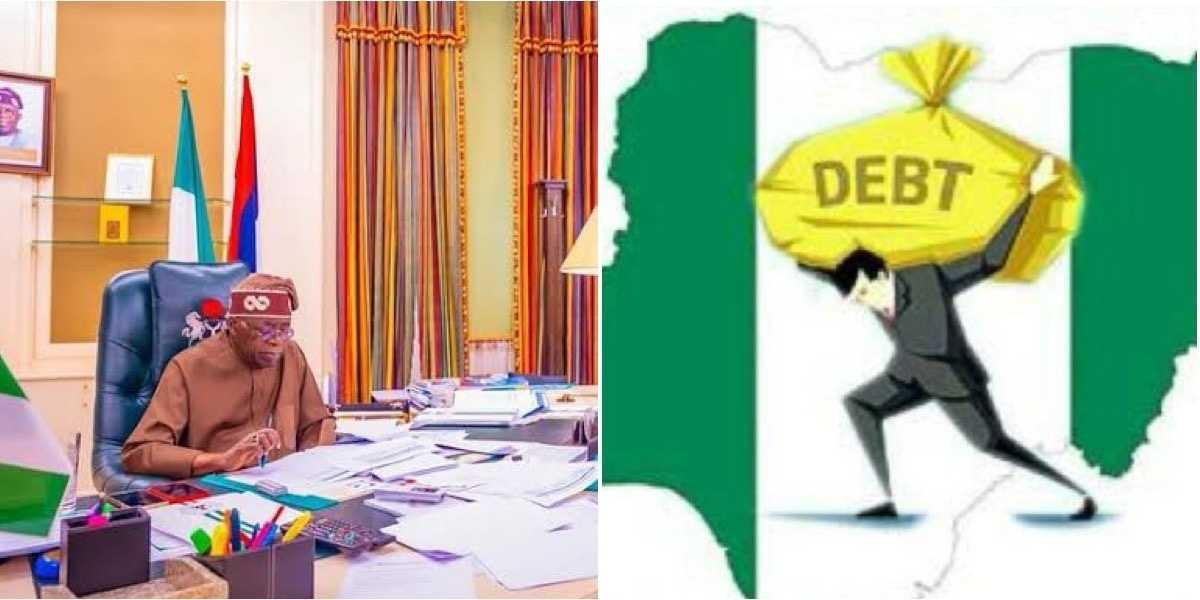News
Presidency Explains Why Borrowing Remains Key to National Development

The Presidency has come out to defend Nigeria’s rising debt profile, insisting that borrowing is not inherently a bad thing, but rather a necessary instrument for funding national development in a resource-constrained economy like Nigeria’s.
Speaking during a media briefing in Lagos, presidential aides addressed growing concerns over the nation’s increasing debt stock, particularly following President Bola Ahmed Tinubu’s recent request to the National Assembly for the approval of fresh domestic and external loans amounting to ₦34.15 trillion.
Special Adviser to the President on Information and Strategy, Mr. Bayo Onanuga, said there is nothing sinful about borrowing, adding that even wealthier and more developed countries borrow far more than Nigeria. He stressed that what truly matters is the purpose for which borrowed funds are used. According to him, the government is focused on using loans to stimulate economic growth and drive infrastructural development, not to finance frivolous spending.
Onanuga explained that Nigeria, despite being a large country, has a comparatively small budget when placed side by side with countries like South Africa. He noted that this budget constraint makes borrowing essential to meet the country’s vast development needs. In his words, “We must stop deceiving ourselves. Nigeria is not as rich as many people think. Our reality demands that we manage expectations and plan within the limits of our available resources.”
He acknowledged the turbulence of the administration’s first year, referencing issues such as inflation, forex instability, and inherited economic liabilities. However, he pointed out that the situation is improving, with key macroeconomic indicators showing significant progress. He said Nigeria’s stock market performance has more than doubled since 2023, foreign reserves have grown to $21 billion, and the country’s debt-servicing burden has been reduced from 97 percent of revenue to under 60 percent—a shift he described as freeing up more space for investing in social and economic projects.
The Presidency also maintained that beyond loans, the government has adopted a blend of creative financing strategies and private-sector partnerships to drive critical sectors like infrastructure, housing, and education. Onanuga said over 600,000 students have already benefited from the federal student loan scheme under NELFUND, and several technical education initiatives are underway to lay the foundation for a more industrialized Nigeria.
Addressing the cost-of-living crisis, he said the administration is not blind to the realities facing Nigerians. According to him, interventions are being rolled out steadily—from agricultural support programs to bulk purchases of essential medicines and policies encouraging the adoption of Compressed Natural Gas (CNG) as an alternative to costly petrol. He cited the example of ride-hailing drivers now earning in a day what they previously earned in a week, thanks to fuel cost savings from switching to CNG.
He also disclosed that the President had recently approved a six-month waiver on rice import duties to combat food scarcity and break the hold of hoarders who exploit the situation to inflate prices artificially.
In support of these remarks, Special Adviser on Public Communication, Mr. Sunday Dare, emphasized that borrowing is the only viable way to finance large-scale infrastructure projects like the Lagos-Calabar and Sokoto-Bida highways, which he said are catalysts for economic rejuvenation across regions. He argued that the real threat to the economy isn’t borrowing, but waste and mismanagement.
According to both advisers, the Tinubu administration’s approach to borrowing is rooted in strategy, transparency, and a commitment to laying solid foundations for national transformation. While acknowledging that the path to recovery is challenging, they urged Nigerians to be patient and support the government’s efforts under the Renewed Hope Agenda, which they said is designed to reposition the country for long-term stability and prosperity.
RECOMMENDED FOR YOU
Tinubu’s New Loan Request Could Tip Nigeria’s Economic Scales— Here Is Why































